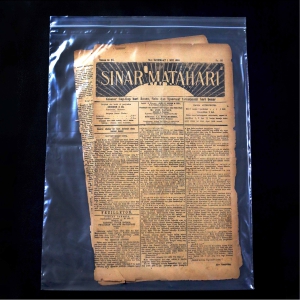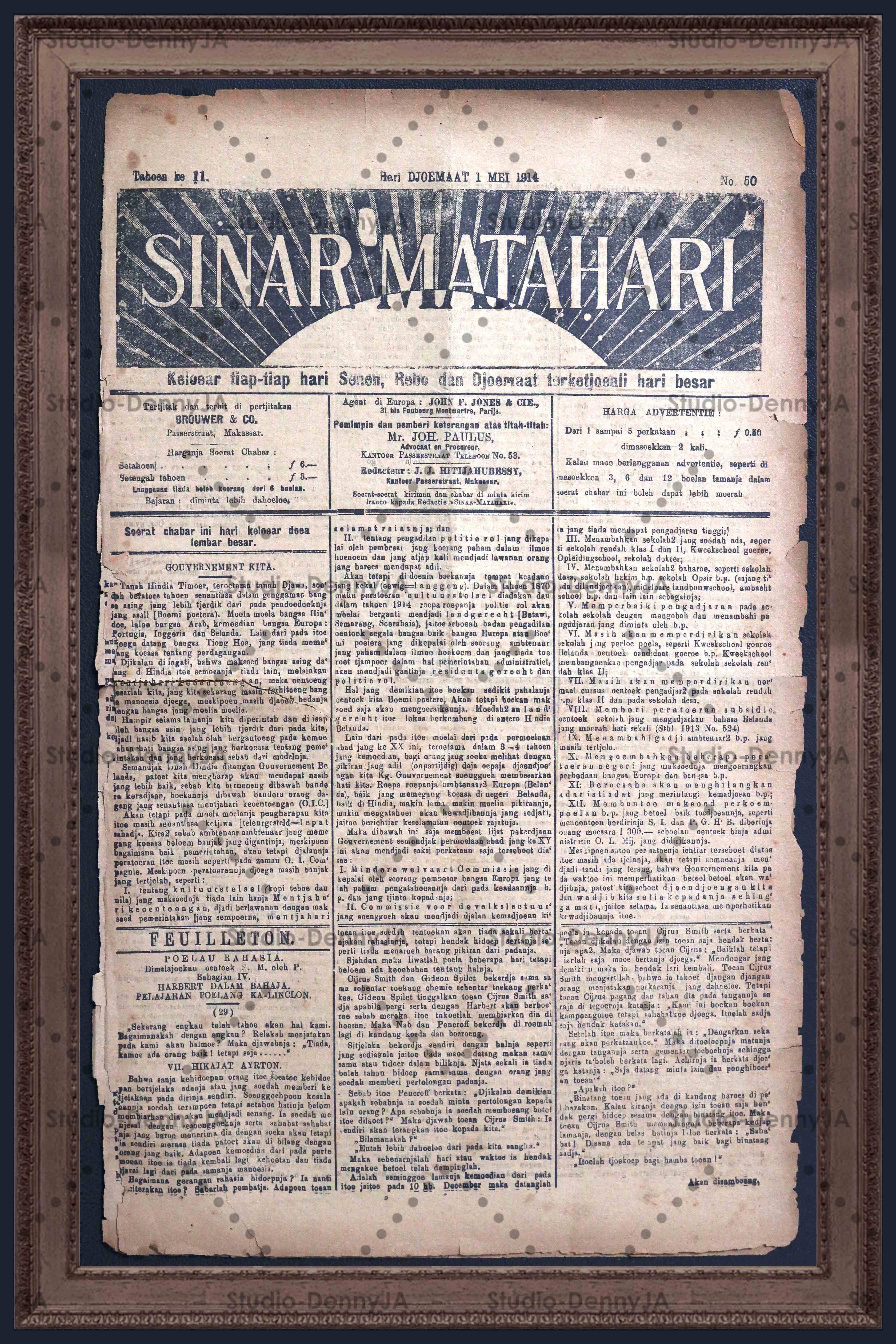
Legendary Newspapers Denny JA Collections
Sinar Matahari - Makassar
by JJ Rizal
The first edition of this newspaper was launched in June 1904 in Makassar, published by Brouwer & Co. Sinar Matahari rises every Monday and Thursday with a subscription rate of 6 gulden per year.
Not much is known about this newspaper, except that it is a competitor to the Makassar Newspaper. The readers of these two newspapers are mainly Chinese Peranakans. In 1907, the correspondents of the two newspapers wrote articles that berated each other. This was due to the Russo-Japanese War in 1905 which gave Asians a great deal of confidence who was often viewed as a second-class race. Judging from the readers' letters, the example of Japan has been used as an inspiration by the Chinese to unite and strive for progress. Japan's victory over Europeans was often discussed in Sinar Matahari—as was the Chinese press in Java and Sumatra at that time. This also reflects their latent dissatisfaction with the treatment of the Dutch colonial government throughout the Dutch East Indies. This at least explains the position of the Sinar Matahari newspaper regarding the formation of the "Chinese awakening" which began with the search for Chinese cultural identity for a nationalism, not only in the Dutch East Indies as a Dutch colony, but also in Southeast Asia which was under the British colony. This effort illustrates the need for the Chinese to have greater opportunities to lead life in the countries where they live. This nationalism was manifested in the formation of the Tiong Hoa Hwee Koan (first Indonesian-Chinese nationalism movement) in Batavia which then spread rapidly, including to Makassar. In 1903, the Tiong Hoa Hok Tong association was founded, whose political stance was reflected in Sinar Matahari and Makassar News. At first they were only readers, but later many involved themselves as correspondents and editors. The newspaper closed in 1919.

